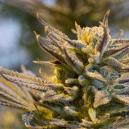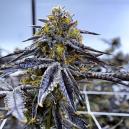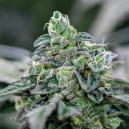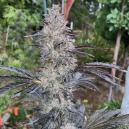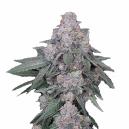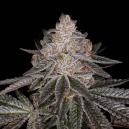Cannabis And Schizophrenia: A Complex Relationship
Published :
May 3, 2018
Categories :
Medical cannabis

For decades, cannabis has been linked to causing forms of psychosis that could lead to schizophrenia. However, further studies show that cannabis use actually has both adverse and beneficial effects on people who are afflicted with the disease.
Even in the age of legalization and education, many people still have a negative impression of cannabis as a mind-altering substance. Despite the numerous therapeutic applications that high-CBD and THC strains pose, the risk of adverse effects is something that certain individuals are extremely wary of.
One conversation that has surrounded cannabis for decades is whether it can initiate or exacerbate psychosis and/or schizophrenia. After all, this was one of the main angles perpetuated by the Reefer Madness era of the 1930s and beyond. But all things considered, does cannabis have an actual link to psychosis or schizophrenia? This article aims to answer that question.
SCHIZOPHRENIA DEFINED
For those who are not very familiar with this condition, schizophrenia is a mental illness wherein those who suffer from it often lose sight of reality. With over 7.5 million people afflicted in the United States alone, schizophrenia commonly develops in men in their early 20’s. Women who develop this condition often experience it later in their lives.
While psychosis is not the only symptom of schizophrenia, those afflicted do experience delusions, disorganised speech, and hallucinations. Others also suffer from lack of social motivation, having a flat emotional state, impaired attention, and memory problems.
LINKING CANNABIS WITH SCHIZOPHRENIA
Several studies on schizophrenia cite cannabis as a common link to the disease. Some studies have concluded that most people with the disease have a higher likelihood of toking up, compared to their counterparts without the condition. Its effects on afflicted smokers, however, vary greatly.
Other studies have shown that several patients feel good during their time using the substance, but tend to experience adverse effects once the high wears off. Other findings conclude that schizophrenics who used cannabis showed “superior” cognitive function, specifically on visual memory and executive functioning.
RISK FACTORS OF USING CANNABIS FOR SCHIZOPHRENICS
While the results of the studies differ from one to the other, one general conclusion that has been made is that cannabis may have unfavourable effects for people who already suffer from schizophrenia. For one, it is believed that THC may act as what’s known as an “environmental trigger” to augment the disease’s effects.
The adverse effects of cannabis will be most felt by patients who use the herb at a young age. THC on its own is not advisable for a developing brain, and having schizophrenia in the picture can also enhance the risk factors for the disease.

CAN CANNABIS LEAD TO SCHIZOPHRENIA?
Based on some first-hand accounts from patients, there have been links between marijuana use at a young age and the development of schizophrenia. A study performed on mice that were genetically predisposed to schizophrenia concluded that the rodents showed stronger symptoms of the disease when exposed to THC. Inversely, mice that did not have the same at-risk genetics did not display the same outcomes upon THC intake.
However, a study conducted by Harvard Medical School shut down any links between cannabis use and schizophrenia among humans. Specifically, it stated that “having an increased familial morbid risk for schizophrenia may be the underlying basis for schizophrenia in cannabis users and not cannabis use by itself”.
CBD AS TREATMENT?
While THC may have undesirable effects on a brain affected by schizophrenia, its non-psychoactive counterpart cannabidiol (CBD) is believed to be the exact opposite. Like with many other ailments, CBD has been the go-to substance to alleviate patients from pain and other symptoms.
Firstly, CBD has been used as a form of antipsychotic treatment with very few side effects, unlike traditional medication. Further tests performed on animals also showed that CBD actually helped improve conditions such as working memory and social interaction deficits.
CONCLUSION: THE COMPLEX RELATIONSHIP BETWEEN CANNABIS AND SCHIZOPHRENIA
Like many other cases in cannabis research, the link between the two has yet to be definitively concluded. As of the moment, cannabis bears both positive and negative effects for people with schizophrenia, and neither one is enough to significantly overrule the other.
But as technology and cannabis awareness continue to develop, we can likely expect a much clearer conclusion in the near future.














